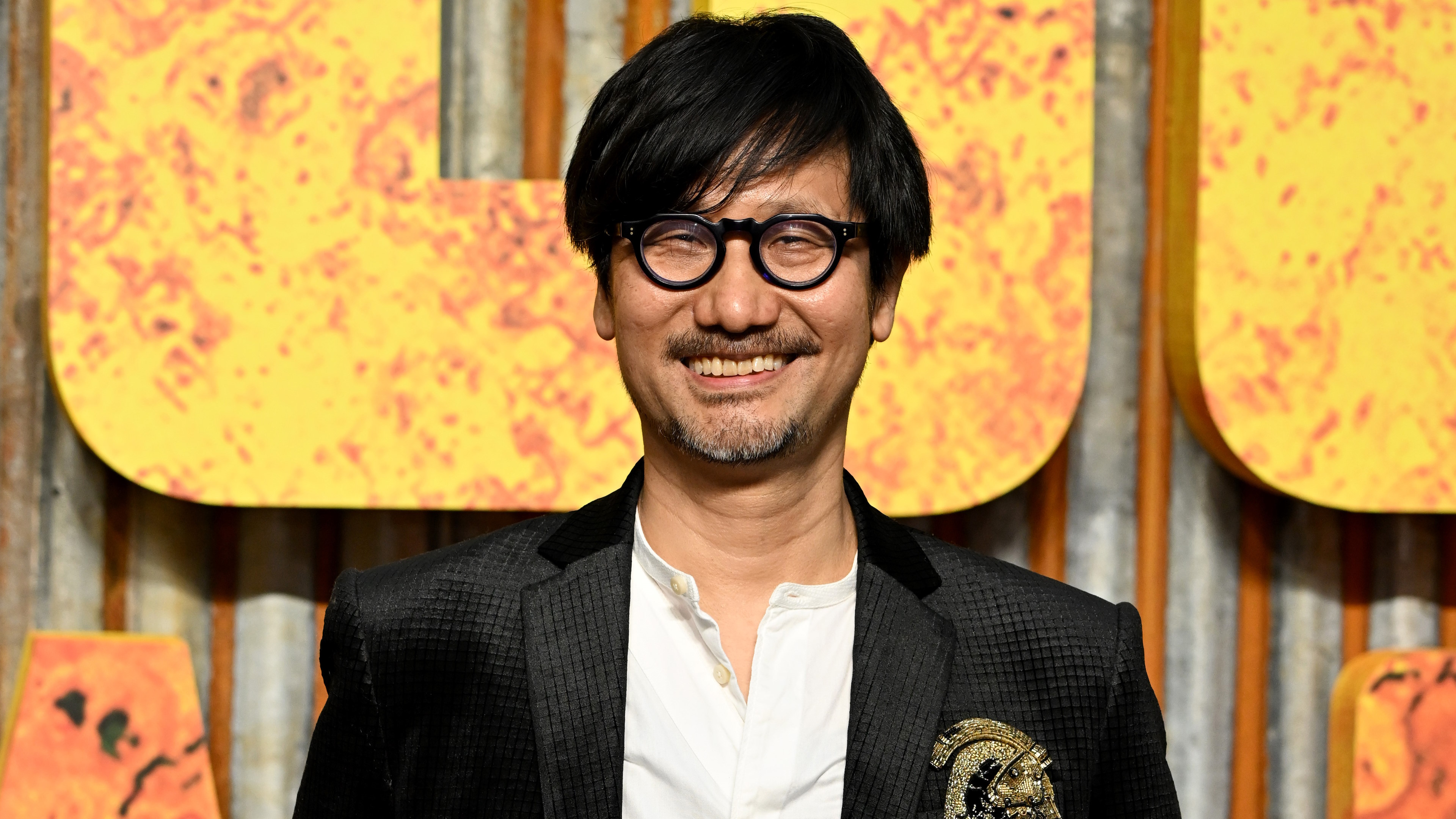Hideo Kojima has an idea for a game where you age and die, 'but no-one would buy it', then immediately suggests one where you eventually forget how to move
I mean, the Memento license is right there.

Keep up to date with the most important stories and the best deals, as picked by the PC Gamer team.
You are now subscribed
Your newsletter sign-up was successful
Want to add more newsletters?

Every Friday
GamesRadar+
Your weekly update on everything you could ever want to know about the games you already love, games we know you're going to love in the near future, and tales from the communities that surround them.

Every Thursday
GTA 6 O'clock
Our special GTA 6 newsletter, with breaking news, insider info, and rumor analysis from the award-winning GTA 6 O'clock experts.

Every Friday
Knowledge
From the creators of Edge: A weekly videogame industry newsletter with analysis from expert writers, guidance from professionals, and insight into what's on the horizon.

Every Thursday
The Setup
Hardware nerds unite, sign up to our free tech newsletter for a weekly digest of the hottest new tech, the latest gadgets on the test bench, and much more.

Every Wednesday
Switch 2 Spotlight
Sign up to our new Switch 2 newsletter, where we bring you the latest talking points on Nintendo's new console each week, bring you up to date on the news, and recommend what games to play.

Every Saturday
The Watchlist
Subscribe for a weekly digest of the movie and TV news that matters, direct to your inbox. From first-look trailers, interviews, reviews and explainers, we've got you covered.

Once a month
SFX
Get sneak previews, exclusive competitions and details of special events each month!
In a recent episode of Hideo Kojima's podcast KOJI10, the Metal Gear and Death Stranding creator discussed some of the game ideas he's had relating to time. These should be taken with a pinch of salt, because Kojima's always loved spieling about how certain concepts would work in videogames, but at least one was almost part of Death Stranding 2: On the Beach (both spotted and translated by IGN).
Time-based mechanics have been a minor theme in some of Kojima's past work, probably most famously with The End in Metal Gear Solid 3, an elderly sniper boss who can be beaten by simply…. not playing the game for a week (or moving your machine's internal clock forward).
Kojima also mentions that game's food system: the animals you hunt in-game for Snake's meals will go rotten after a few real world days have passed. This makes Snake sick, but they can also be used as a guerilla booby trap by being left near hungry guards.
"I’ve thought about having characters’ hair grow in games," says Kojima. "Originally in Death Stranding 2, I was going to have Sam’s beard gradually grow out over time, and the player would have to shave it. If they didn’t, Sam would end up looking unkempt. However, as Norman Reedus is a big star, I didn’t want to make him look uncool!"
Kojima says he might return to this idea in future, though it does sound awfully like Red Dead Redemption 2, where I've spent more hours than I care to admit carefully shaving and pomading Arthur Morgan.
Then we get into the good stuff: firstly, Kojima imagines a game where you control a character over their entire life.
"It starts out with the player being born, you’re a child and then gradually over time you become an adult," says Kojima. "In the game, you fight various enemies. Like with [MGS3’s The End], if you keep playing the game, you will become a 70 or 80 year old man. However, at this age you will be weaker, your eyesight will worsen. When you are a teenager you’ll be able to run faster but by the time you reach 60 you’ll slow down a bit."
Keep up to date with the most important stories and the best deals, as picked by the PC Gamer team.
Kojima says the character will have better physical stats when younger but, without quite explaining how, more knowledge and experience when older. This would apparently play into how you deal with the enemies. Despite the enthusiasm for this idea, Kojima concludes "But no-one would buy it!"
Another idea is some sort of weird food-making simulator where you're producing cheese or wine, and have to log in repeatedly over a long period of time to manage the process. I mean, fine, but at that point why not just actually make some cheese. Maybe Kojima was feeling hungry.
Finally we come to the wildest idea of all, which sounds like what would happen if someone made Memento into a game. In this "forgetting game" players have to get through the entire thing "quickly", because the main character gradually forgets abilities and information if you don't play every day.
Kojima says that examples of how this would work would be "how to fire their gun or what their job is." The endpoint of the process would be that, erm, the character forgets how to move in their entirety, and presumably you just log in and look sadly at your recumbent avatar. "Players would have to take a week off work or school to play it," laughs Kojima.

Rich is a games journalist with 15 years' experience, beginning his career on Edge magazine before working for a wide range of outlets, including Ars Technica, Eurogamer, GamesRadar+, Gamespot, the Guardian, IGN, the New Statesman, Polygon, and Vice. He was the editor of Kotaku UK, the UK arm of Kotaku, for three years before joining PC Gamer. He is the author of a Brief History of Video Games, a full history of the medium, which the Midwest Book Review described as "[a] must-read for serious minded game historians and curious video game connoisseurs alike."
You must confirm your public display name before commenting
Please logout and then login again, you will then be prompted to enter your display name.


